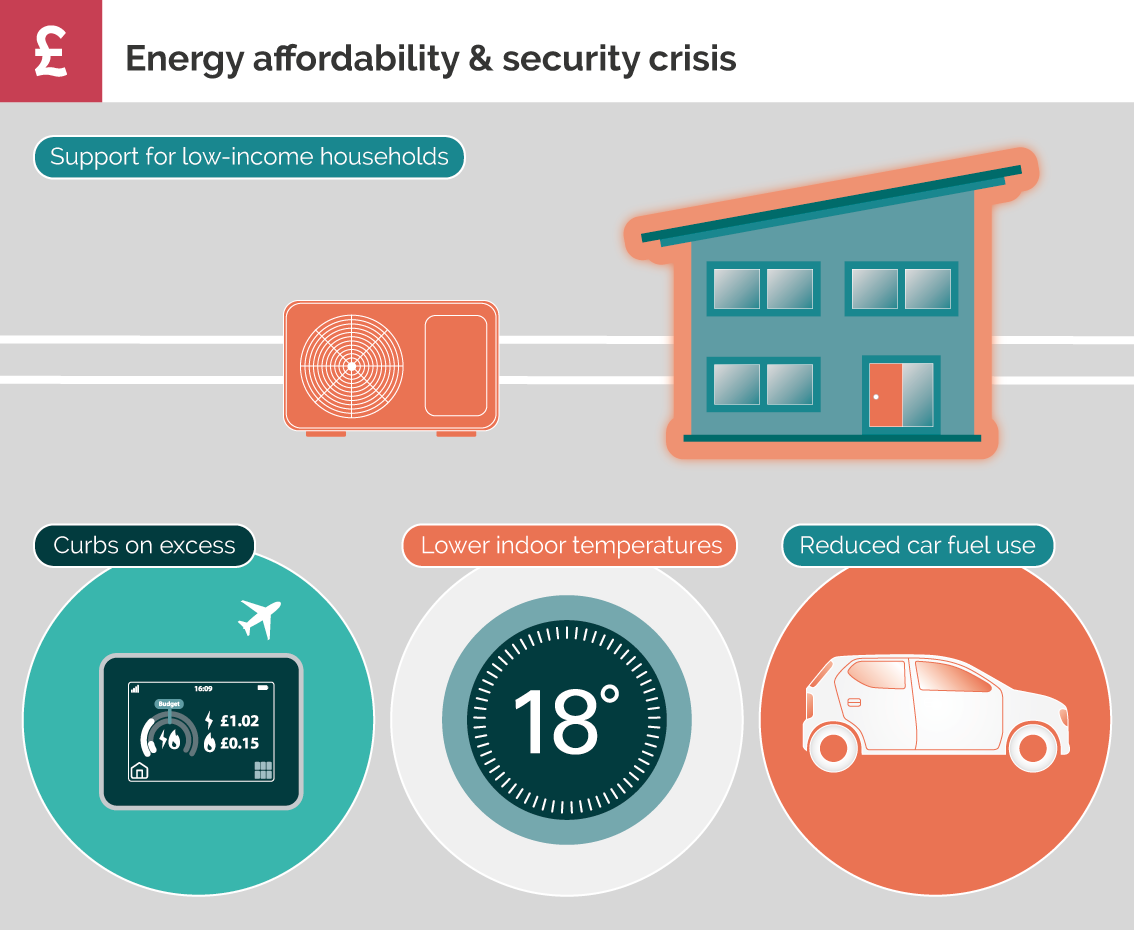
Energy affordability is now a critical problem, due to the large increase in gas prices, and therefore also electricity prices, following the Russian invasion of the Ukraine in 2022. The policy changes announced by the UK Government in response understandably focused on measures that could be quickly adopted – limiting price increases, and to a lesser extent supporting incomes.
Significant longer-term measures to reduce energy use through improving energy efficiency were not adopted, and home energy efficiency policy ambition has been further reduced in 2023. This follows a decade in which energy efficiency policies have been significantly scaled back, see ‘Policy and Governance’, leaving the UK more vulnerable to price shocks.
Saving energy can also reduce the risk of physical shortages of energy. Energy security is a public good, so Government has the central role in addressing it. Our analysis points to UK Government neglecting the potential of improved energy efficiency to contribute positively to both the cost of living crisis and UK energy security strategy.
In the short term, large demand reductions can only be achieved by reducing demand for energy services, notably winter heating. In the winter of 2022/23, higher prices contributed to demand reductions of 8% and 11% for electricity and gas respectively, implying short run price elasticities of ~-0.1. [1]. The reduction in gas use is consistent with a self-reported average thermostat setting reduction of 1c [2]. 40% of household also reported reducing boiler flow temperatures, which is likely to be a persistent change.
Gas use (but not electricity use) was reduced more by people reporting a lack of financial wellbeing. This is not surprising, but implies that the households most affected by the cost of living crisis have contributed the most to addressing UK energy security concerns. In some cases, this will have increased risks of cold-related morbidity and mortality.
The energy saving measures needed for a transition to net-zero emissions cannot be delivered in their entirety on the timescales needed to resolve an immediate crisis. However, the cost of living crisis is an additional reason to begin a planned long-term approach to demand reduction, not to avoid it. This points to a twin-track strategy in which high-income households take the main responsibility for rapid reductions in energy use to address security risks, whilst low-income households are the main beneficiaries of policy to reduce prices and support incomes, as well as for housing energy efficiency improvement [3].
Evidence
- Winter demand falls as fuel bills rise: understanding the energy impacts of the cost-of-living crisis on British households | Research paper (preprint), 2023
- Self-reported energy use behaviour changed significantly during the cost-of-living crisis in winter 2022/23: Insights from cross-sectional and longitudinal surveys in Great Britain | Research paper (preprint), 2023
- The energy price crisis – issues for energy use | CREDS Policy brief 023, 2022
Banner photo credit: Pat Whelen on Unsplash
